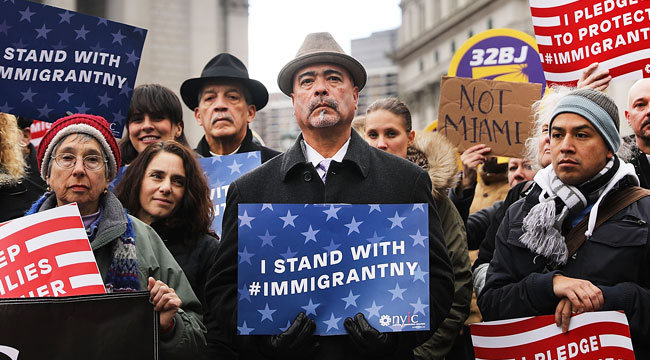
President Trump and Jeff Sessions have continued their joint quest against undocumented immigrants and the sanctuary cities that protect them. Sessions threatened to remove Justice Department grants from cities that refuse to abandon their status, and Trump issued an executive order that blocked federal funding to these cities (despite NYC using much of that funding for counterterrorism efforts to protect Trump Tower). Yet Trump has seen opposition from the judicial branch on the subject. In April, a federal judge in California blocked part of his executive order, and now, that same judge has permanently blocked the order while labeling it as unconstitutional.
U.S. District Court Judge William Orrick ruled that a president can’t limit spending that’s already received Congressional approval. To do so would violate the Fifth and Tenth Amendments along with the separation of powers doctrine. Here’s the relevant portion of Orrick’s court opinion:
“The Constitution vests the spending powers in Congress, not the President, so the Executive Order cannot constitutionally place new conditions on federal funds. Further, the Tenth Amendment requires that conditions on federal funds be unambiguous and timely made; that they bear some relation to the funds at issue; and that they not be unduly coercive. Federal funding that bears no meaningful relationship to immigration enforcement cannot be threatened merely because a jurisdiction chooses an immigration enforcement strategy of which the President disapproves.”
And Orrick also fired a shot at Trump’s Twitter addiction while stressing that he sought to limit any abuse of power by the executive branch:
“No one is above the law, including the president. President Trump might be able to tweet whatever comes to mind, but he can’t grant himself new authority because he feels like it. This case is a check on the president’s abuse of power, which is exactly what the framers of the Constitution had in mind.”
So, Trump’s executive order is effectively kaput until his administration starts the appeals process, which will most certainly happen. Orrick’s order comes as the latest blow to his immigration policies after another federal judge blocked Trump’s third travel ban — which barred most travelers from Chad, Iran, Libya, North Korea, Syria, Somalia, and Yemen — on the day before it would have taken effect. Well, Trump is expected to appeal that order as well.
Who knew that the federal court system would be so occupied with (anti-)immigration executive orders in 2017?
(Via Washington Post & CNN)
